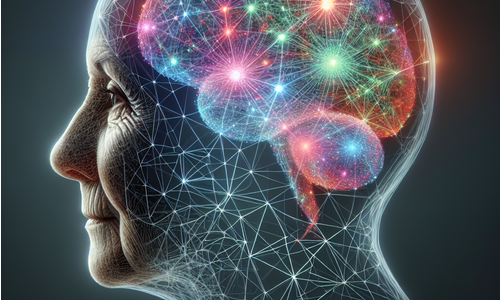How to Improve Your Memory and Brain Health with Logic Puzzles
In today’s fast-paced world, it’s easy to feel overwhelmed by the constant demands and distractions of daily life. With so much information coming at us from all angles, it can be difficult to keep our brains sharp and focused. However, there is a simple solution that has been proven to improve cognitive function and strengthen the brain: logic puzzles. These engaging and challenging activities not only provide hours of entertainment, but also offer numerous benefits for our memory and overall brain health. In this article, we will explore the power of logic puzzles and how they can help you train your brain and improve your cognitive function. So, put away your phone and take a break from the constant barrage of information – it’s time to give your brain a workout with some logic puzzles!
To start, let’s discuss the basics of logic puzzles. These are puzzles that require you to use reasoning and critical thinking skills to solve them. They come in various forms, such as Sudoku, crossword puzzles, and brain teasers. By engaging in these types of puzzles, you are exercising your brain and keeping it active. This can ultimately lead to improved memory and cognitive function.
One way logic puzzles help with memory enhancement is by improving your focus and concentration. When solving a puzzle, you must pay close attention to details and think logically. This trains your brain to focus on one task at a time, which can then translate into better concentration in everyday life.
In addition, logic puzzles can also help with problem-solving skills. As you work through a puzzle, you are constantly analyzing and finding solutions. This type of thinking can be applied to real-life situations, helping you become a better problem solver.
Furthermore, solving logic puzzles can also improve your memory retention. By regularly engaging in these types of exercises, you are strengthening the connections between neurons in your brain. This can ultimately lead to better memory recall and retention.
It’s also worth mentioning that logic puzzles can be a fun and engaging way to train your brain. Instead of mindlessly scrolling through social media or watching TV, you can challenge yourself with a puzzle that is both entertaining and beneficial for your brain.
However, it’s important to note that logic puzzles should not be the sole method used for memory enhancement and brain training. It’s also important to incorporate a healthy diet, regular exercise, and other cognitive activities into your routine.
In conclusion, logic puzzles can be a valuable tool for improving your memory and overall brain health. By engaging in these types of activities, you can sharpen your cognitive skills, improve concentration, and boost memory retention. So the next time you have some free time, try solving a logic puzzle and see the benefits for yourself.
The Benefits of Logic Puzzles
Solving logic puzzles requires critical thinking and problem-solving skills, which are essential for maintaining a sharp memory and healthy brain. As we age, our cognitive function naturally declines, making it more important than ever to engage in activities that challenge and stimulate our brains.
Logic puzzles require us to use different parts of our brain, such as memory, spatial reasoning, and analytical skills. This helps to strengthen neural connections and improve overall brain function. By regularly solving logic puzzles, we can also increase our processing speed and improve our ability to retain new information.
In addition to improving memory and cognitive function, logic puzzles also provide a sense of accomplishment and satisfaction when solved. This can boost self-confidence and reduce stress levels, both of which have a positive impact on brain health.
Moreover, solving logic puzzles can also help prevent age-related cognitive diseases such as dementia and Alzheimer’s. Studies have shown that engaging in mentally stimulating activities like solving puzzles can delay the onset of these diseases.
Overall, incorporating logic puzzles into our daily routine is a simple yet effective way to improve our memory and brain health. So why not add some fun and challenging puzzles into your life today?
How Logic Puzzles Train Your Brain
Logic puzzles are more than just a fun pastime – they can also have a significant impact on your brain’s cognitive function and memory. When you engage in solving a logic puzzle, you are exercising your brain and challenging it to think in new and creative ways. This not only improves your problem-solving skills, but it also strengthens the connections between neurons in your brain.
As you continue to solve logic puzzles, you are essentially training your brain to work more efficiently and effectively. This can translate to improved memory, as your brain becomes better at storing and retrieving information. In fact, studies have shown that regularly engaging in mentally stimulating activities, such as logic puzzles, can help slow down age-related memory decline.
Furthermore, logic puzzles require you to use both the left and right sides of your brain. The left side is responsible for logical thinking and analytical reasoning, while the right side is associated with creativity and intuition. By exercising both sides of your brain simultaneously, you are improving the overall functioning and coordination of your brain.
Overall, logic puzzles can have a positive impact on your cognitive function and memory by challenging and training your brain in various ways. So next time you’re looking for a way to keep your mind sharp, try solving a few logic puzzles – your brain will thank you for it.
Incorporating logic puzzles into your routine can have significant benefits for your memory and brain health. It’s a fun and engaging way to keep your brain active and improve various cognitive skills. However, it’s important to remember that it should not be the only method used for memory enhancement. Make sure to also maintain a healthy lifestyle and engage in other activities that promote brain health.

